Melatonin for Dogs? Here’s What to Know
Melatonin, a supplement often used to help humans sleep, has gained attention for its benefits in dogs as well. This natural hormone can be administered to dogs in safe doses, offering various advantages.

Studies and observations suggest that melatonin can assist with anxiety, stress, sleep issues, behavioural problems, and certain skin disorders in dogs. Some reports also speak to its potential use in addressing certain autoimmune conditions in canines.
What Is Melatonin?
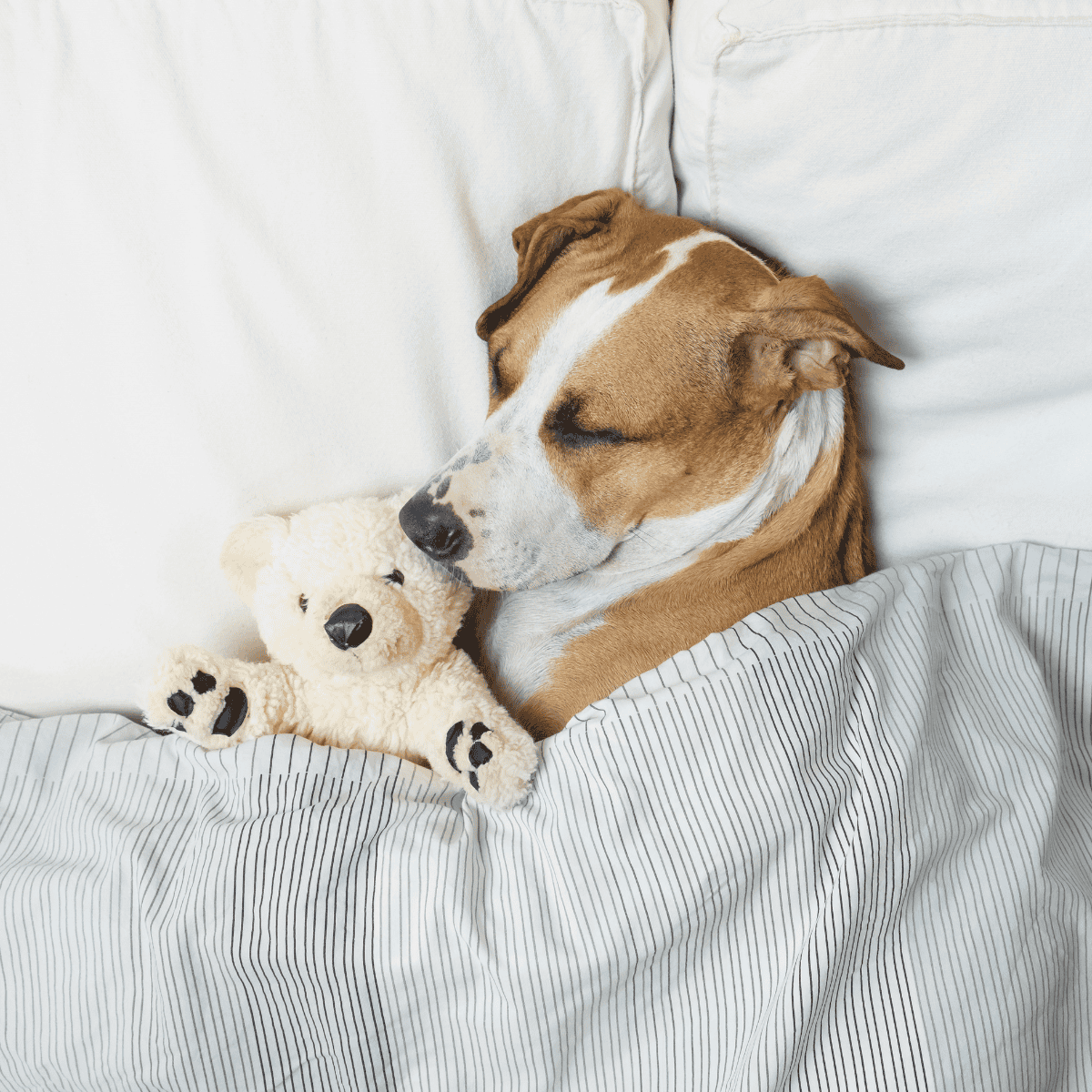
Melatonin is a hormone that the pineal gland in the brain produces. It plays a role in managing sleep patterns, mood, and reproductive cycles. Darkness triggers the body to produce melatonin, while light decreases its production. This cycle helps both humans and animals, like dogs, to transition into sleep more easily.
Melatonin acts on specific receptors mostly found in the brain. Once it binds to these receptors, the process of falling asleep becomes quicker. This natural process underscores the importance of light and dark in regulating sleep.
Safety and Efficacy of Melatonin for Dogs
Melatonin is often used to help dogs with sleep issues or anxiety. It is a hormone that helps regulate sleep-wake cycles. Veterinarians may recommend melatonin for dogs because it can provide a calming effect.
Is Melatonin Safe for Dogs?

Melatonin is generally considered safe for dogs when given in the correct dosage. Side effects are rare but might include drowsiness or changes in fertility. Pet owners should consult a veterinarian before starting melatonin to ensure proper dosage and rule out any underlying health issues.
When is Melatonin Effective?

Melatonin can be effective for dogs who experience anxiety, especially during storms or fireworks. It is also used for dogs with sleeping problems or to manage symptoms of certain health conditions like Cushing’s disease.
Dosage Recommendations

The right dose depends on the dog’s size and the specific issue being treated. Typically, veterinarians recommend around 1 mg for smaller dogs and up to 3-5 mg for larger ones. Always follow the vet’s advice and never exceed recommended amounts.
Important Considerations
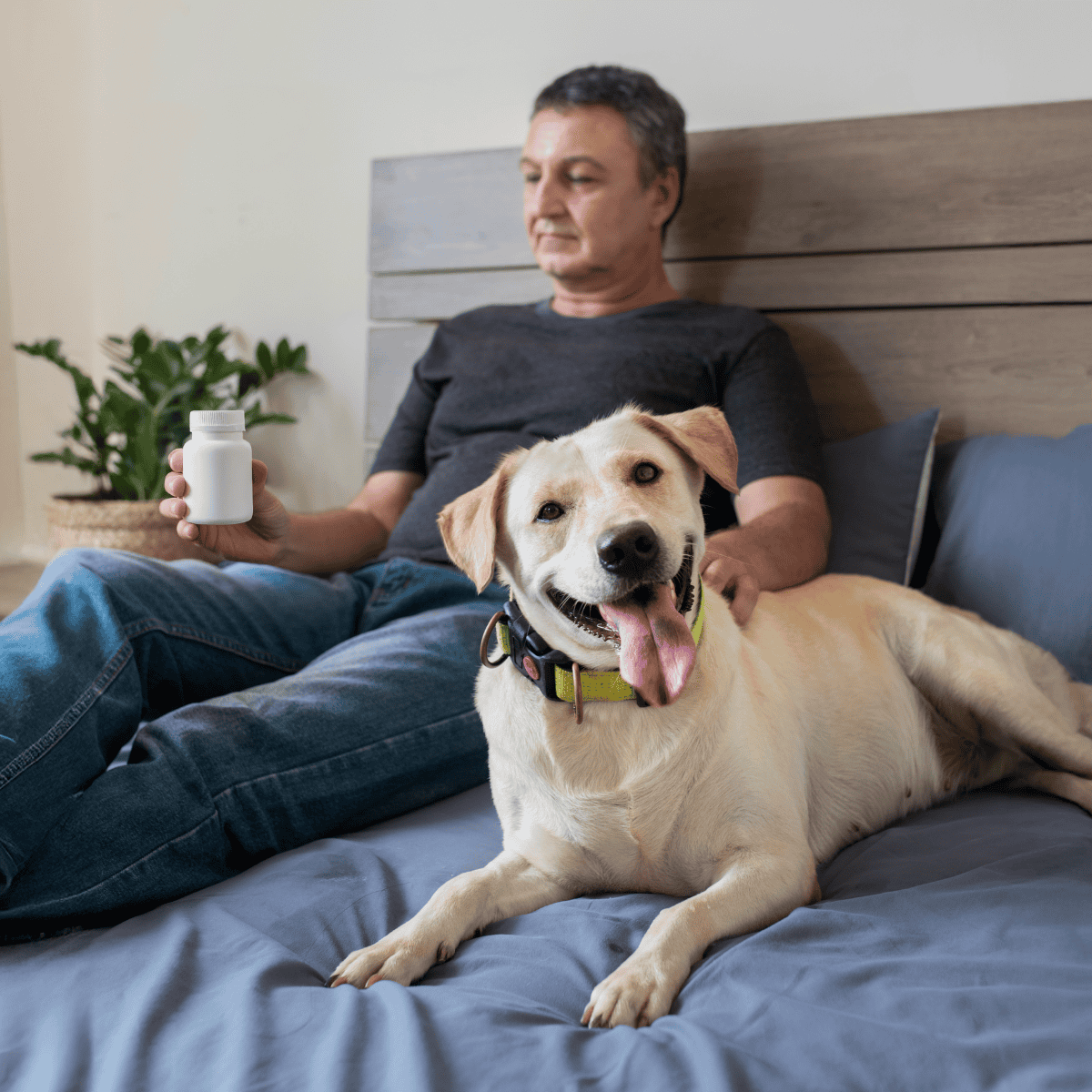
Melatonin supplements often contain other ingredients. Some, like xylitol, are toxic to dogs. Check labels and ensure the product is pet-safe. If a dog experiences side effects, such as vomiting or increased heart rate, it is important to contact a vet immediately.
Enjoying this read?
We publish this content for free to generate interest in our Premium members' area. By subscribing, you can ask the writer any questions related to pet care and this article, get access to 100+ Premium Pet Care Guides and go Ad-Free with DogFix Premium for $2.99.
Appropriate Melatonin Dosages for Dogs
Melatonin can help dogs with anxiety, sleep problems, or Cushing’s disease. Giving the right amount depends on several factors, including the dog’s size and health.
Factors Influencing Dosage
When deciding on a melatonin dose for dogs, several factors need to be considered. The age, health condition, and specific needs of the dog are important. Older dogs or those with health issues may require different dosages. It’s essential to consult with a veterinarian before starting melatonin.
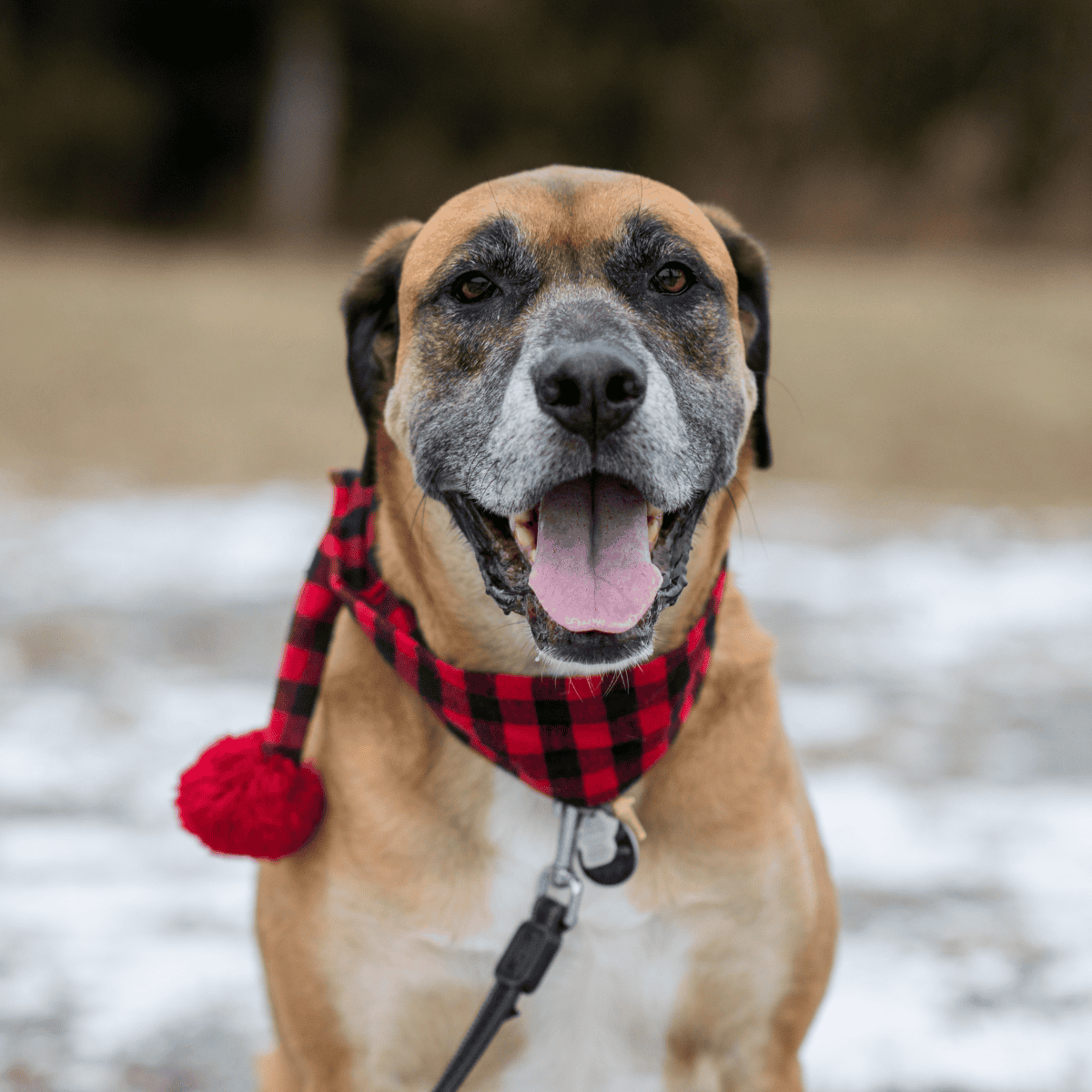
The purpose of the melatonin also affects the dose. Dogs taking it for anxiety might need a different amount than those using it for sleep issues. A vet can give advice tailored to a dog’s specific situation.
Dosage Guidelines by Weight

Melatonin dosage can also be determined by the dog’s weight. Generally, smaller dogs need lower doses compared to larger dogs. A common guideline is:
| Weight | Dosage |
| Under 10 pounds | 1 mg |
| 10 to 25 pounds | 1.5mg |
| 26 to 100 pounds | 3 mg |
| Over 100 pounds | 3 to 6 mg |
These are general suggestions, and individual needs might vary. It is always best to follow a vet’s instructions for safe use. Adjustments may be necessary based on how the dog responds.
Steps to Give a Dog Melatonin
Melatonin can be a helpful supplement for dogs and comes in many forms, like tablets and capsules, or even liquids and sprays. When choosing a melatonin product, it’s crucial to read the label carefully. Some products, such as gummies, may contain xylitol, an artificial sweetener that is very harmful to dogs. Always avoid any product with this ingredient.

In the United States, the FDA does not regulate these supplements as strictly as some other countries. This means the quality can vary a lot between brands.
To make sure the supplement is safe, look for those tested and verified by organisations like the United States Pharmacopeia (USP). This can help ensure that the product contains the listed ingredients without harmful contaminants.
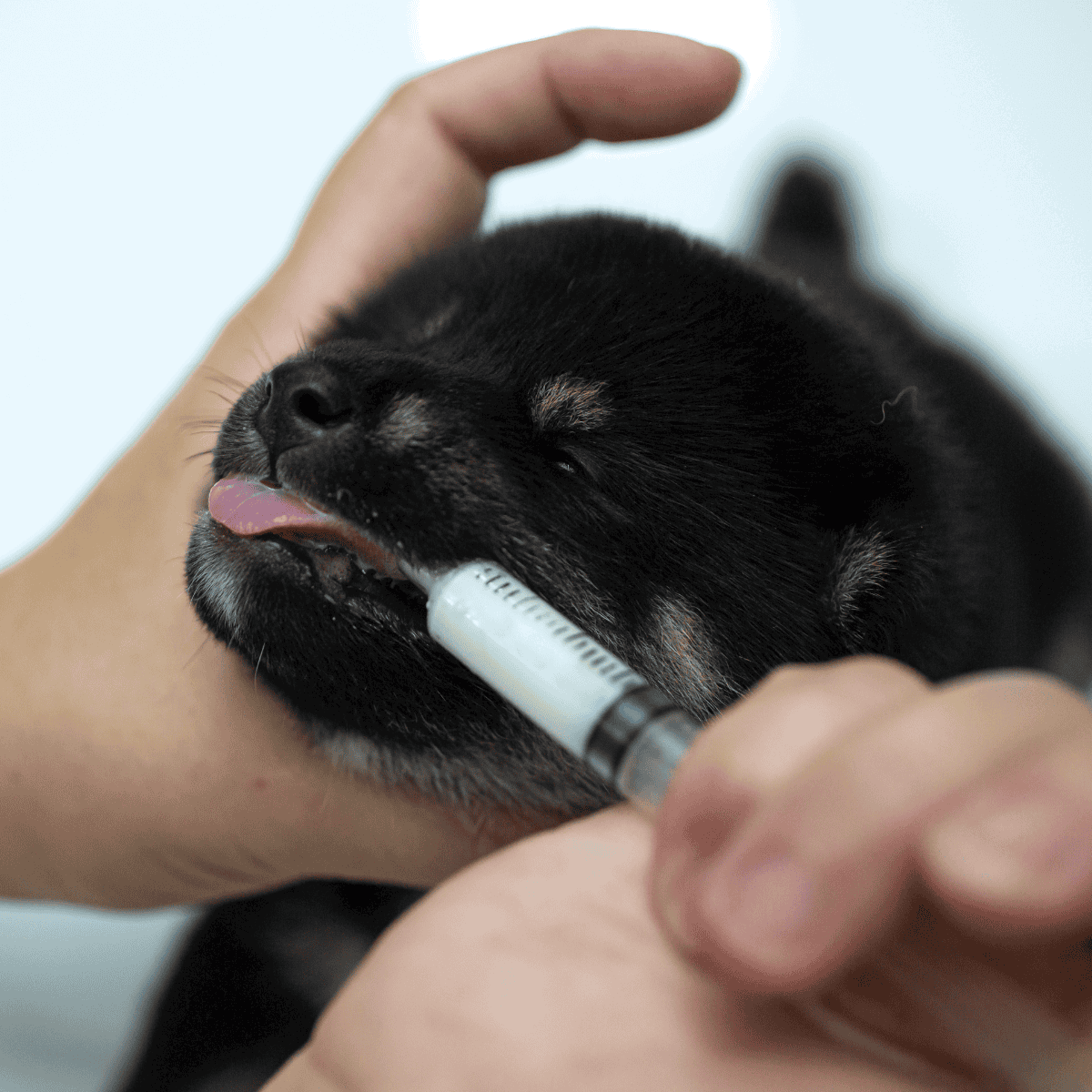
For consistent dosing, tablets and capsules are often the best choice. These forms usually provide the most reliable amounts of melatonin each time. If your dog struggles with swallowing pills, liquid forms might be an easier option.
Common Uses of Melatonin in Canine Care
Sleep problems

Melatonin is often used to help dogs with sleep problems. It can assist with calming them down and making bedtime easier, especially for dogs that have difficulty sleeping through the night.
Anxiety

Anxiety relief is another key use of melatonin for dogs. It can help during stressful situations like fireworks, thunderstorms, or travelling. Many owners find it useful in making their pets feel more at ease.
Cushing’s disease

Dogs with Cushing’s disease may benefit from melatonin. Melatonin blocks the uptake of excess cortisol in the dog’s body. It can help manage some symptoms, like hair loss or excessive drinking, though it is not a standalone treatment.
Alopecia

Melatonin can also aid with seasonal alopecia, a condition where a dog loses hair during certain seasons. By giving melatonin, owners might see improvement in hair growth and quality. Melatonin also helps in treating hormone related alopecia due to its inhibitory effect on the luteinizing hormone and follicle stimulating hormone.
Cognitive Dysfunction

For dogs with cognitive dysfunction, melatonin may help improve their quality of life by reducing confusion and restlessness. In each case, it’s important to consult a veterinarian. They can provide proper dosage and guidance specific to each dog’s needs.
Appetite Stimulation
Some dogs lose their appetite due to stress or illness. Melatonin could promote hunger and assist dogs in maintaining a healthy diet. This effect can be beneficial for dogs recovering from illness and in need of nourishment.

It is essential to consult with a veterinarian before starting melatonin supplements. Different dogs can react differently, and a vet can advise on the appropriate dosage and use.
Autoimmune Disorders

In some cases, melatonin might offer benefits for dogs with certain autoimmune issues, like immune-mediated thrombocytopenia, which affects the blood’s ability to clot. Though these claims are based on individual reports, it could be a helpful addition to a broader treatment regimen. It’s critical to discuss with a veterinarian before starting any new treatment, including melatonin, to ensure it aligns well with the dog’s health needs.
Possible Side Effects of Melatonin for Dogs
When considering melatonin for dogs, be aware of some possible side effects. It’s important to watch for signs like dizziness, nausea which may show up as drooling a lot, not wanting to eat, or throwing up, and too much tiredness during the day.

If any of these signs appear, or if there are any other changes after beginning melatonin, consulting a veterinarian is crucial.
Medication Interactions
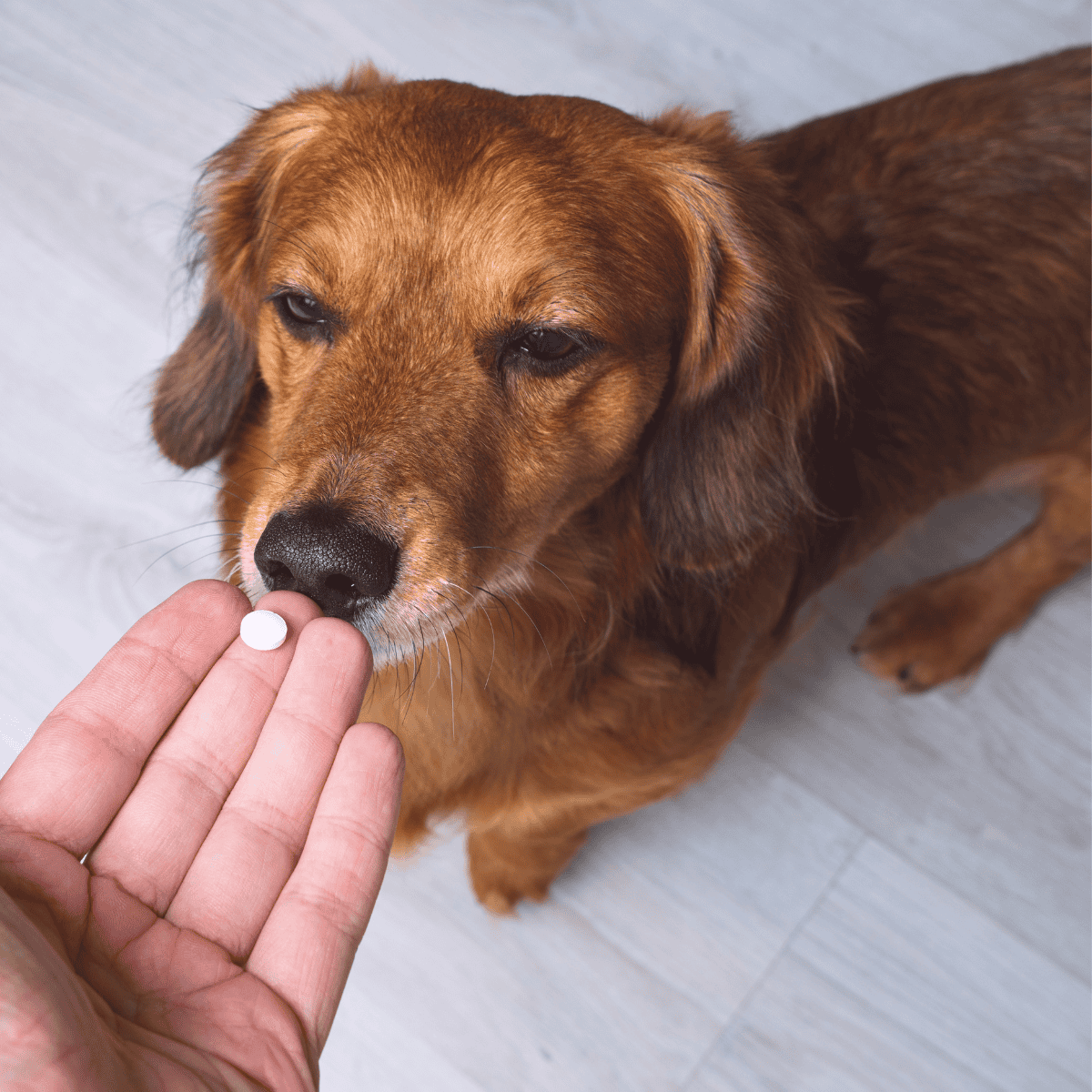
Melatonin may interact with some drugs. It can lessen the effect of medications that lower blood pressure, including calcium channel blockers.
It might also raise the chance of bleeding for dogs on blood thinners such as warfarin. Additionally, melatonin could interfere with the action of corticosteroids and drugs that suppress the immune system.
Severe Reactions and Risks
Although rare, some dogs may experience more serious reactions. Symptoms to watch for include allergic reactions, such as itching or swelling, and changes in behaviour like increased anxiety or restlessness. When these symptoms are observed, it is important to discontinue use immediately and contact your veterinarian.
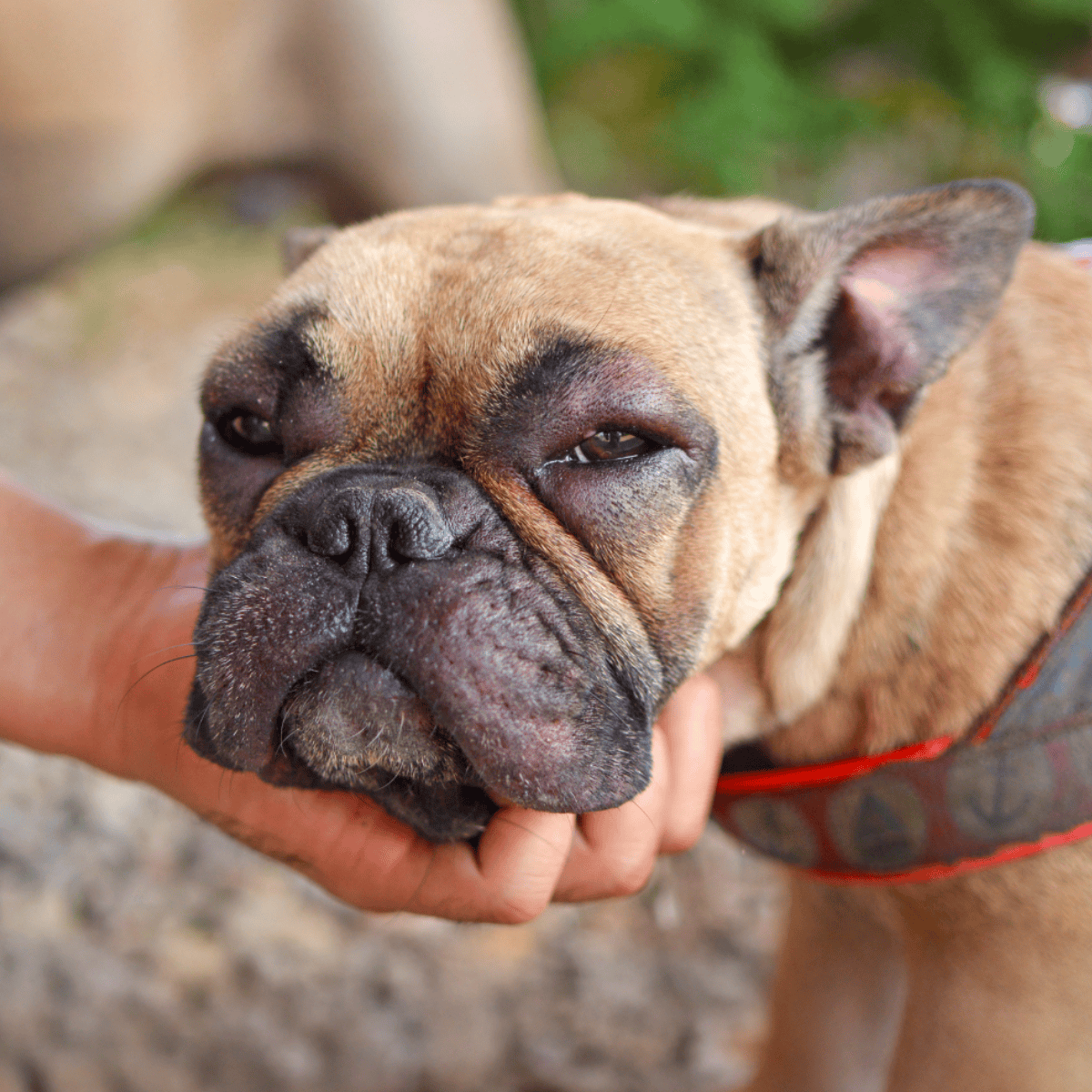
Risk increases when other medications are mixed with melatonin. Always discuss with a vet before combining treatments. Being aware of these risks allows for timely intervention and keeps pets safe.
Interactions with Other Medications
When considering melatonin for dogs, it’s important to think about how it might interact with other medications they may be taking. Melatonin can influence certain drugs in the dog’s system.
Blood Thinners

Melatonin might affect blood clotting, which means it can increase the risk of bleeding when taken with blood thinners. If your dog is on these medications, keep an eye on any unusual bruising or bleeding.
Immunosuppressants
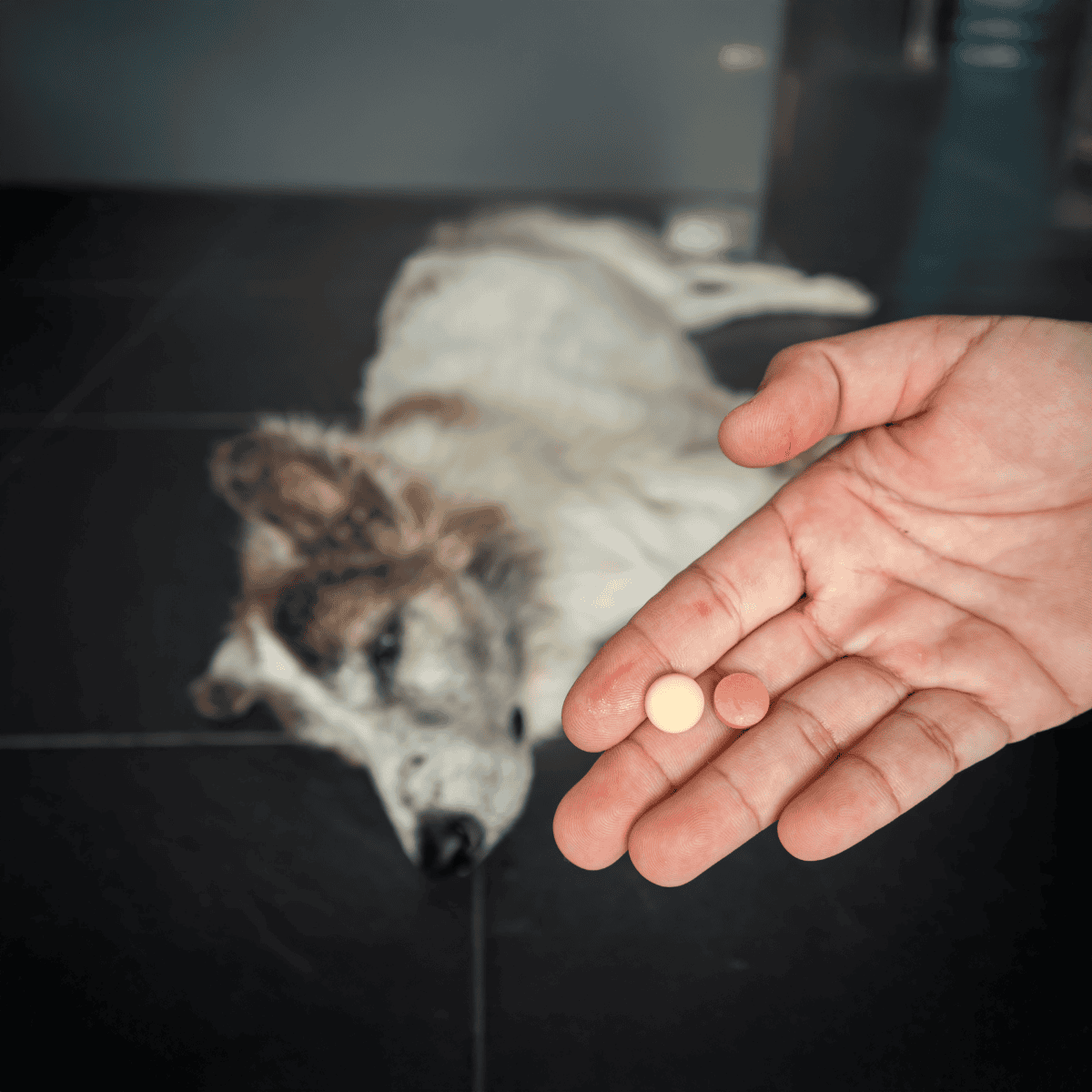
Melatonin boosts the immune system. For dogs on immunosuppressants, it can reduce the medicine’s effectiveness. Consider this interaction if your dog is being treated for autoimmune conditions.
Sedatives

Melatonin also has a calming effect. If your dog is on sedatives, adding melatonin can enhance sleepiness. If your dog seems too drowsy during the day, it’s crucial to consult the vet.
Consulting a Veterinarian Before Use
Before giving melatonin to a dog, it’s important to talk to a veterinarian. A vet can give advice tailored to a dog’s specific needs and health conditions. They can determine the right dose and check if melatonin is safe for the dog.

Melatonin might interact with other medicines a dog is taking. A veterinarian can help identify any risks. They will also know if melatonin is suitable for treating certain conditions like anxiety or sleep issues in dogs.
Some dogs might have health issues that could be affected by melatonin. For example, dogs with diabetes or other hormone problems may need extra care. The veterinarian can discuss these concerns and suggest alternatives if needed. Reaching out to a vet ensures a safe and informed decision, making the use of melatonin both effective and secure for the dog.
Dog Melatonin FAQs
Is Melatonin Useful for Calming Dogs?
Melatonin can help calm anxious dogs. It is sometimes recommended for pets with anxiety, such as during thunderstorms or fireworks. Always check with a vet to see if it’s a good option for your pet.
What is the Right Dose of Melatonin for My Dog?
The correct dose of melatonin for a dog depends on its size and why it is needed. It is best to ask a vet for a dose that is safe and effective for your dog.
Factors Influencing Dosage:
- Dog’s Weight
- Condition Being Treated
Is Too Much Melatonin Harmful to Dogs?
It is uncommon to overdose on melatonin. Even if a large amount is accidentally eaten, the main worry is that a clump of pills might get lodged in the intestines. Vet advice is important if over-ingestion occurs.
Is Melatonin Fatal to Dogs?
There is no evidence to suggest that melatonin can cause severe issues or death in dogs. It’s still crucial to consult a vet before giving any new supplement, including melatonin, to ensure it is safe.
